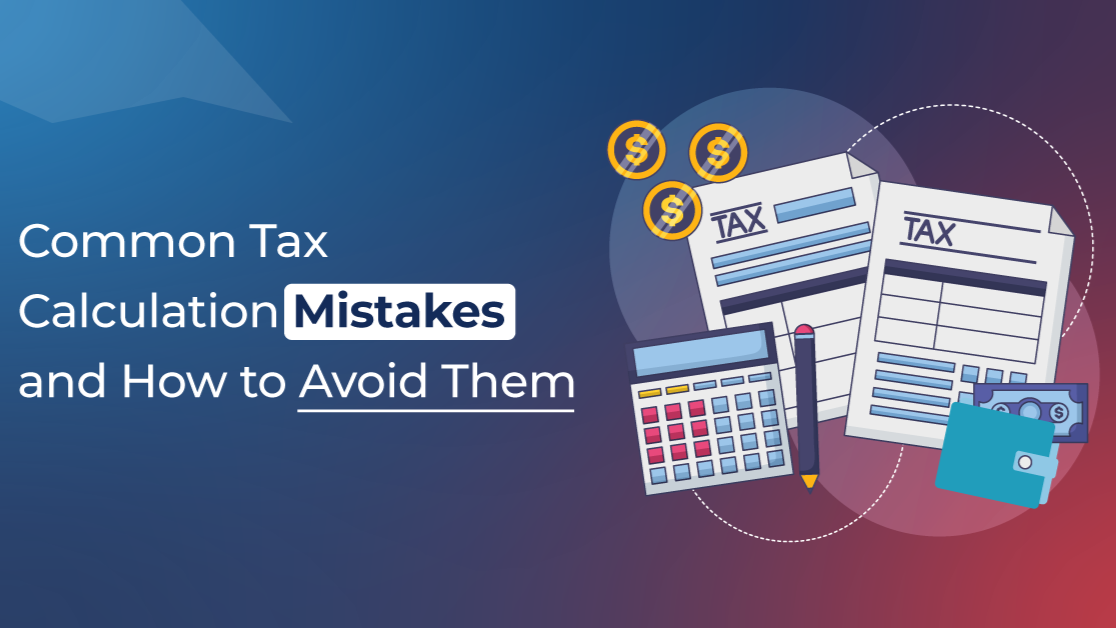9 Common Tax Mistakes & How to Avoid Them

Filing taxes is a critical responsibility for businesses and individuals alike. However, even small mistakes during the process can lead to costly penalties, audits, or missed opportunities for savings. Many taxpayers make common errors, from missing deadlines to misreporting income, often due to a lack of understanding or preparation. The good news is that these mistakes are avoidable with the right strategies and professional guidance. This article highlights 9 common tax mistakes and provides practical tips to help you avoid them, ensuring your tax filing is accurate and stress-free. Let’s dive into these essential insights for better tax management.
How To Deal With Common Tax Mistakes?
Below, we explore nine frequent tax mistakes and provide actionable advice to ensure smooth and accurate tax filing for small businesses.
-
Missing Tax Deadlines
One of the most common mistakes businesses make is failing to meet tax filing deadlines. Late filings can result in penalties and interest charges, significantly increasing your financial burden. Setting reminders and using digital tax tools can help you stay on track. Consider professional tax services to manage timelines efficiently and avoid unnecessary stress.
-
Incorrect Income Reporting
Misreporting your business income, whether intentional or not, can lead to serious consequences, including audits. Income from all sources must be accurately recorded and reported. Using accounting software or outsourcing this task ensures precise calculations. This approach not only keeps you compliant but also supports seamless tax consulting for small businesses, ensuring no income details are missed.
-
Overlooking Eligible Deductions and Credits
Tax deductions and credits can significantly reduce your taxable income, yet they are often overlooked. Common missed deductions include home office expenses, vehicle mileage, and startup costs. Working with a professional ensures that you identify and claim all eligible deductions, maximizing your savings and minimizing liabilities..
-
Poor Record-Keeping Practices
Disorganized financial records can lead to inaccurate filings and make you vulnerable to audits. Proper record-keeping is vital for tracking expenses, verifying income, and substantiating deductions. Implementing a reliable bookkeeping system or hiring a professional ensures your records are always in order, reducing errors during tax season.
5. Misclassifying Employees and Contractors
Many businesses struggle with correctly classifying employees versus independent contractors. Misclassification can lead to hefty fines and back taxes. Understanding IRS guidelines is crucial for making the right classifications. Outsourcing this task to experts ensures compliance and protects your business from costly legal issues.
6. Ignoring State and Local Taxes
Focusing solely on federal taxes while neglecting state and local obligations is a common error. Businesses must comply with local tax laws, which vary depending on location. Engaging a tax expert familiar with your region ensures all your tax responsibilities are fulfilled, safeguarding your business against penalties.
7. Attempting DIY Tax Filing for Complex Returns
While small business owners may try to handle taxes themselves, complex filings often require professional expertise. Without the right knowledge, you risk errors that could lead to audits or fines. Professional services not only streamline the process but also provide peace of mind, ensuring your filings are accurate and compliant.
8. Mathematical Errors in Tax Calculations
Errors in calculations, such as incorrect totals or misapplied tax rates, can result in inaccurate filings and delays in refunds. Utilizing tax preparation software or hiring professionals eliminates the risk of such mistakes. This ensures your returns are both accurate and timely.
9. Neglecting Future Tax Planning
Failing to plan ahead for taxes can leave businesses scrambling to cover unexpected liabilities. Tax planning allows you to strategize, optimize deductions, and prepare for upcoming obligations. Collaborating with tax professionals ensures your business stays financially prepared and avoids surprises.
Conclusion
By addressing these common mistakes and prioritizing tax filing for small businesses, you can safeguard your business against financial losses, penalties, and unnecessary stress. Taking proactive steps, whether through professional assistance or improved processes, will help your business thrive during tax season and beyond.







